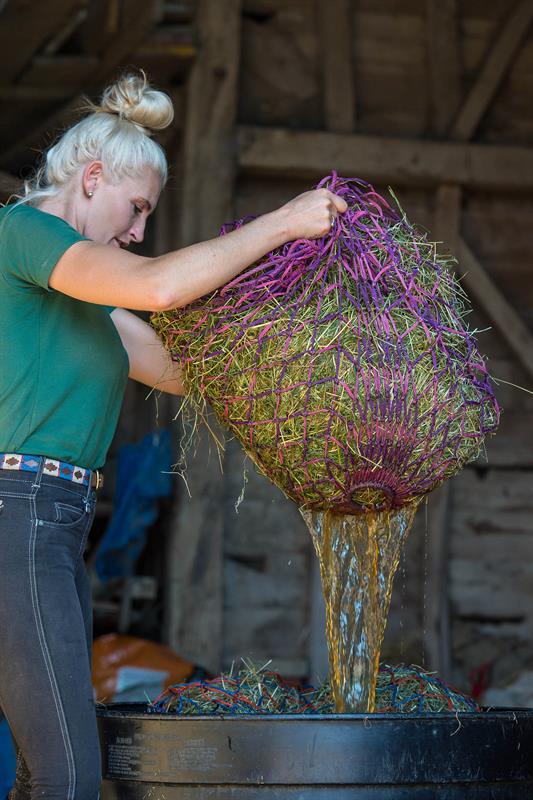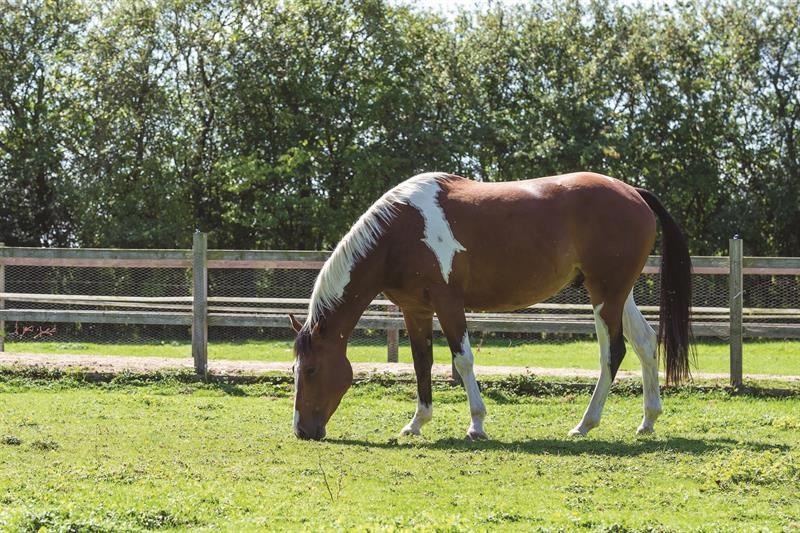Managing good-doers, and preventing laminitis, involves being in control of every aspect of a horse or pony’s diet and exercise regime.

Forage Intake
- Overweight or laminitis-prone equines should never be starved as this can cause further metabolic complications. Forage intake must not fall below the equivalent of 1% of the horse’s bodyweight per day and, for those on a strict diet, will need to be weighed.
- Although haylage may have a lower overall sugar content than hay, it is generally higher in calories so is best avoided for good-doers. To further reduce calorie content, hay should be soaked for several hours to leach nutrients out, although care should be taken in warmer weather as the soaking water can become unpleasant.
- Using small-holed haynets and/or a net within a net will help a small amount last longer, since lengthy periods without forage are also to be avoided as they risk gastric ulcers or other digestive upsets.
- Exercise is important to avoid weight-gain or encourage weight-loss. Even “pet ponies” can be kept on the move by having to walk round their box/paddock for forage, by tying several small nets in different places.
- Alternative forage sources include low calorie chaffs, like Baileys Light Chaff, some of which have a lower calorie content than average hay and which can be fed in larger quantities to add variety to the good-doer’s diet. Soaked Speedi-Beet is also useful as a small amount, dry weight, soaks up to a large volume, to keep a horse chewing without providing many calories.
- “Fortified” chaffs, which contain vitamins and minerals, can replace both the forage and bucket feeds but must be fed at recommended levels in order to provide a fully balanced diet.
Turn-Out
- Whether overweight or not, a susceptible equine’s access to pasture should be carefully managed. Fructan content of grass varies according to light intensity, temperature and stage of growth. Current recommendations suggest that the safest time to turn out is late at night and for them to come in my mid-morning.
- While not currently a risk, sunny frosty mornings are also to be avoided, when the temperature is too cool for grass to grow but the sunlight encourages photosynthesis and the resultant fructan is stored rather than being used for grass growth.
- Aside from fructan levels, whilst grass provides essential fibre, it is also a calorific forage and intake may need managing simply to avoid weight-gain. Options range from strip grazing, limiting time out, to grazing muzzles.
Compound Feed
- For the laminitic, the emphasis is on limiting starch intake which means avoiding cereals. This should not be at the expense of other essential nutrients, however, which are best provided by a balancer, like Baileys Lo-Cal or Performance Balancer. These supply protein, vitamins and minerals to support hoof growth, health and well-being, without the calories associated with a mix or cube.
- Most balancers also contain pre and/or probiotics to support gut health; this is of paramount importance to the laminitic, as bacterial populations in the hindgut are compromised during an attack.
- The antioxidants provided by balancers are also important as free radical levels within the body increase as a result of stress or illness, like laminitis.
- Feeding the correct amount of a balancer each day, plus some low calorie chaff, if desired, is a good way to ensure the horse or pony receives all the essential nutrients it needs, whereas “fortified chaffs” are often under-fed so the animal misses out.
- The laminitis-prone who need to gain condition can be given additional calories in the form of highly digestible fibre provided by the likes of Speedi-Beet, Fibre-Beet or Alfalfa Plus Oil, with their daily balancer. High oil supplements, like Baileys Outshine, are also useful and ideally contain the additional antioxidants required to optimise the metabolism of the oil.
- Alternatively, low starch conditioning options include Ease & Excel and Ease & Excel Cubes or, for more moderate calorie intake, Keep Calm or Meadow Sweet with Turmeric.
For information and advice on feeding the laminitic or good-doer, contact our Nutrition Team on 01371 850247, nutrition@baileyshorsefeeds.co.uk or visit our web site www.baileyshorsefeeds.co.uk.
